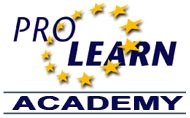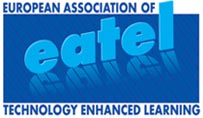Paul De Bra
Paul de Bra heads the databases and hypermedia research group at the Eindhoven University of Technology. The group researches (mainly) the use of adaptive methods and technologies in the areas of learning, culture and entertainment.
Paul De Bra holds a degree in Mathematics and PhD in Computer Science from the University of Antwerp, Belgium. After a post-doc at AT&T; Bell Labs in Murray Hill, New Jersey he joined the Eindhoven University of Technology, to start research in hypermedia and later adaptive hypermedia and adaptive web-based information systems. The commonly used reference model for adaptive hypermedia: AHAM and the most used open source adaptive hypermedia system AHA! were developed under his supervision.
Paul De Bra currently leads the GRAPPLE project, an EU FP7 project on adaptive learning environments.
Adaptive learning environments for life-long learning
The term “life long learning” has become a buzzword in recent years, as we come to realize that we continue to learn new concepts, methods, principles and technologies, no matter how old we are or how much we have learnt before. But life long learning can easily become more and more frustrating because most offerings of learning material do not take into account what we learned before.
The key to keeping a learner interested and motivated is to adapt learning material to their prior knowledge, preferences and learning style. In the EU GRAPPLE project we are working towards a learning environment that supports life-long learning through three main components:
- A Learning Management System (LMS) manages course offerings, registration and storage and access to long-term user information (aka portfolio management). In GRAPPLE we are working with existing Open Source LMSs as well as commercial environments.
- A Distributed User Modeling Infrastructure allows storing, accessing and reasoning over information about users (and user groups) at any level of granularity. The possibility to move UM data between services ensures that user data can be maintained when moving to different learning and/or work environments. (The system thus never forgets what we learned before.)
- An Open Source Adaptive Learning Environment (ALE) allows for the adaptive delivery of and interaction with learning material. It needs a highly modular structure to allow different adaptation strategies and different interactions with the UM infrastructure.
In the lecture (after mixing and matching participant interests with available material) we will discuss technical challenges in building the GRAPPLE infrastructure (which is in its early stages), methodological challenges in providing adaptation in such a way that it helps learners, and give practical examples of adaptation, used in on-line course material, papers, lectures, and perhaps (if desired) also museum and television applications.





